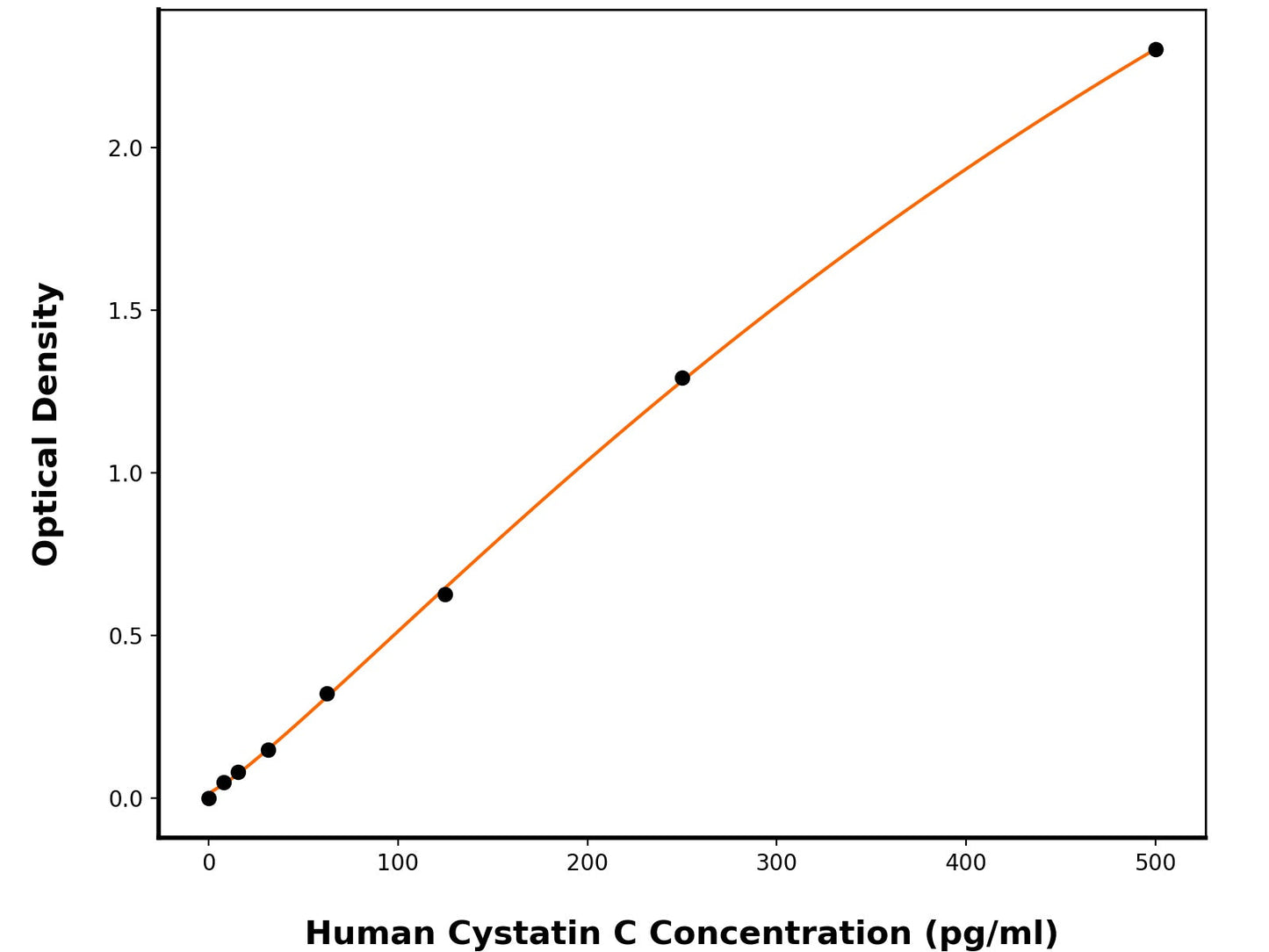1
/
of
1
Human Cystatin-C (CST3) ELISA Kit
Human Cystatin-C (CST3) ELISA Kit
This ELISA kit is designed to detect Human Cystatin-C (Human CST3). The assay plate has been pre-coated with mouse anti-Human Cystatin C monoclonal antibody. When the sample containing Cystatin C is added to the plate, it binds to the antibodies coated on the wells. Then, a horseradish peroxidase conjugated mouse anti-Human Cystatin C Antibody is added to the wells and binds to Cystatin C in the sample. After washing the wells, substrate solutions are added, and the color intensity is directly proportional to the amount of Human Cystatin C present. The reaction is stopped by adding an acidic stop solution, and the absorbance is measured at 450 nm.
Catalog No:
BPE088
Regular price
$624.00 USD
Regular price
$480.00 USD
Sale price
$624.00 USD
Unit price
/
per
2 weeks
Couldn't load pickup availability
Product Details
Species Reactivity
Human
Sensitivity
1.74 pg/mL
Detection Range
7.8-500 pg/mL
Sample Type
Serum, plasma, cell culture supernates
Incubation(s)
3.5 hour(s)
Research Areas
Cardiovascular, Cell Biology, Neuroscience, Stem cells, Tags and Cell Markers
Background
Cystatin C, also known as Cystatin-3 (CST3) is a secreted type 2 cysteine protease inhibitor synthesized in all nucleated cells, has been proposed as a replacement for serum creatinine for the assessment of renal function, particularly to detect small reductions in glomerular filtration rate. The mature, active form of human cystatin C is a single non-glycosylated polypeptide chain consisting of 120 amino acid residues, with a molecular mass of 13,343-13,359 Da, and containing four characteristic disulfide-paired cysteine residues. Cystatin C is a low-molecular-weight protein that has been proposed as a marker of renal function that could replace creatinine. Indeed, the concentration of Cystatin C is mainly determined by glomerular filtration and is particularly of interest in clinical settings where the relationship between creatinine production and muscle mass impairs the clinical performance of creatinine. Since the last decade, numerous studies have evaluated its potential use in measuring renal function in various populations. More recently, other potential developments for its clinical use have emerged. In almost all the clinical studies, Cystatin C demonstrated a better diagnostic accuracy than serum creatinine in discriminating normal from impaired kidney function, but controversial results have been obtained by comparing this protein with other indices of kidney disease, especially serum creatinine-based equations, such as early atherosclerosis, Alzheimer's dementia, vascular aneurysms, hyperhomocysteinaemia and other neurodegenerative diseases. Cystatin C could be a useful clinical tool to identify HIV-infected persons. In addition, its expression is up-regulated in malignance of certain tumor progression.
Shipping Condition
Shipped on cold gel packs.
Storage Condition and Shelf Life
This product can be stored at 2-8C.
Analyte
Cystatin-C
Regulatory Status
For Research Use Only

